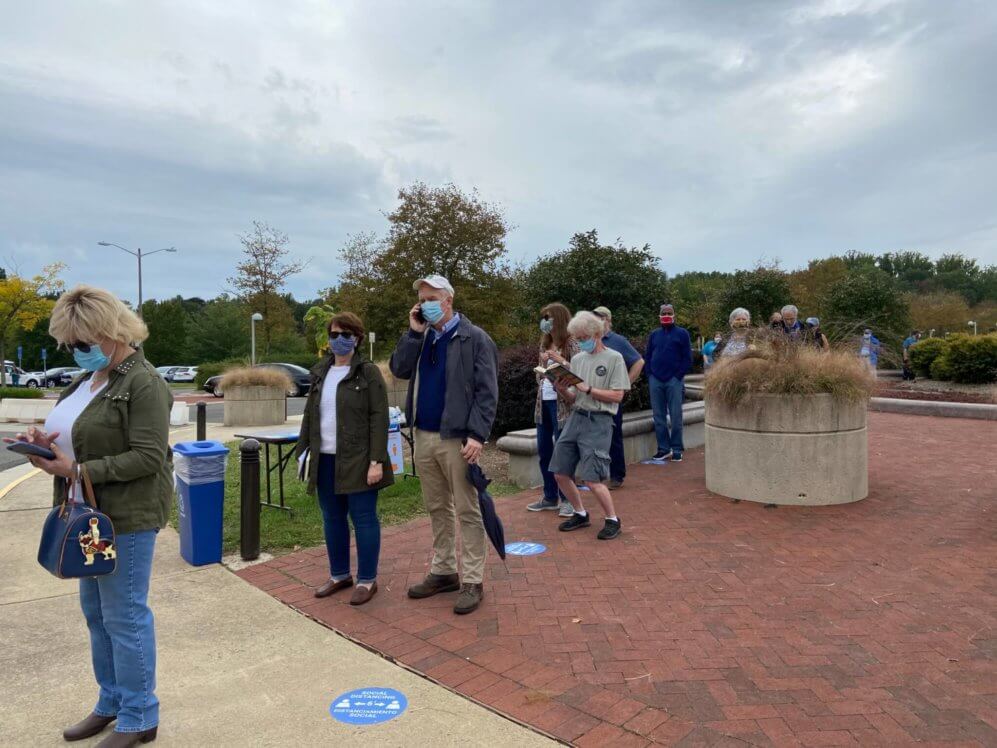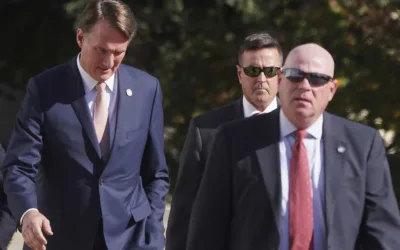
Several new Virginia laws took effect July 1. Here’s a look at how they’ll affect everyone from local residents to city and county registrars.
RICHMOND-When the clock hit midnight on July 1, changes went into effect across the Commonwealth. We mentioned some of the new Virginia laws before, like the marijuana rules. But others might have been forgotten since being passed through the General Assembly in February.
We’ll go one at a time, but here’s a look at some of the bigger changes that took place July 1.
Voting Access Expanded
One big change involves voting. The Assembly’s bills this year expanded access, both in person and through absentee ballots. As of July 1, polling places will be allowed to open on Sundays. To be clear, it allows a city or county to make that change. It doesn’t force anything to happen. Under the new rules, a local electoral board or registrar can make the change during early voting.
The Assembly also set up rules to help disabled and injured Virginians vote. Anyone with a permanent or temporary disability will be able to vote in a space set up outside of their polling place. The idea is to make it easier, rather than asking them to travel through the building. Also, during a declared state of emergency related to a public health threat, any voter will be allowed the same option.
The final voting change is in some ways the most controversial. HB 1888 requires local election staff to process absentee ballots before Election Day. Now, to be clear, that doesn’t mean to count them. Processing an absentee ballot means checking the envelope to make sure it has the voter’s correct information.That includes the name and address. If the voter got it wrong, then the election office would be required to contact that person and give them the opportunity to correct the envelope. The ballot inside remains untouched. If any group violates the law and counts votes before the polls close on Election Day, that’s a Class 1 misdemeanor.
What About The Death Penalty?
As of July 1, Virginia no longer uses the death penalty. Instead of the death penalty, a person would get life in prison if convicted. Also, a judge can suspend some of that sentence, giving the person a potential chance for parole. If you’re convicted of killing a law enforcement officer, the parole option goes off the table, however.
There are two inmates currently on death row, Anthony Juniper and Thomas Porter. Their sentences are immediately changed to life in prison under this new law. On Oct. 28, 2005, Porter went with a friend to buy marijuana at a Norfolk apartment complex. The dealer didn’t have any, however, causing Porter to get mad. According to Virginia Supreme Court case filings, Porter pulled out a gun and locked the door. His friend panicked and called police.
When Norfolk Police Officer Stanley Reaves arrived, Porter shot and killed him, the court records say. He was later sentenced to death in Norfolk Circuit Court.
The court system convicted Anthony Juniper, meanwhile, for multiple murders. On Jan. 16, 2004, he went to his ex-girlfriend’s house in Norfolk to pick up some things after their recent split.
Neighbors heard Juniper and his ex, Keisha Stephens, arguing, then several loud “booms”, court documents say. When police arrived, they found Stephens dead, along with her two daughters and her brother. Stephens’ daughter Nykia was 4 and Shearyia was 2.
Officers testified that the door to Stephens’ apartment had been forced open. She had been stabbed and then shot. The other three victims had all been shot.
A knife left at the scene had Juniper’s DNA on it, along with a cigarette butt near the door. He was convicted and sentenced to death.
Overall, Virginia’s government has executed 1,389 people over more than 400 years.
Some Slight Police Reform
There’s also a few changes for law enforcement. First, most law enforcement agencies, including campus police, can no longer buy or use facial recognition technology. The only exception is if a department goes to the General Assembly and gets permission from the majority to do so. We said most agencies because the Virginia State Police are not included in this law. They’re still allowed to use the equipment.
Also, once a criminal case is no longer active, those investigative files will now be made available to the public. This comes due to situations like the Virginia Beach mass shooting. Families of the victims pushed to know what had been done in the case.
Let’s Talk About Gun Bills
There’s also a couple of gun-related laws taking effect. First, all guns of any kind are banned on the state Capitol grounds and surrounding areas. This comes after several groups, including the Proud Boys, marched to the Capitol with rifles and other guns during “Lobby Day” in January.
Guns are also banned now inside polling places, with exceptions for law enforcement and retired law enforcement officials. It also puts a 40-foot buffer around the building. Before this, you couldn’t approach a voter within 40 feet of the polling place and now you can’t bring a gun within 40 feet of an operational polling site.
Some of Virginia’s polling places already had this, because most schools and places of worship ban guns. Both of those double as polling places on Election Day.
The final change in gun-related law involves domestic abuse. If someone is convicted of assaulting their partner, they receive a three year ban from buying, possessing or transporting any type of gun.
Bikes and Balloon Fines
Balloon releases of any kind are banned as of July 1. No, kids aren’t going to be fined if they’re carrying a balloon and lose it. However, if you’re 16 or older and intentionally release a balloon, you’ll face a $25 fine. That’s $25 per balloon released.
Also, if you’re passing a cyclist on the road, you have to change lanes. The goal is to cut down on crashes across the state.
The ABC’s of Alcohol
Some pandemic-related changes are here to stay. Over the last year, restaurants were allowed to deliver alcoholic drinks and serve cocktails to go, as a way to balance out lost revenue. Both of those practices can continue indefinitely. The only caveat is in order to deliver alcoholic drinks, a restaurant must have an up-to-date beer and wine license.
If a restaurant sets up a designated outdoor area, diners can also drink alcohol outside. And if a non-profit organization holds a virtual fundraiser this year, they can deliver wine to guests, as long as it’s in a closed container.
The Assembly did force one practice to stop. ABC stores will no longer sell drinks that are 7.5% alcohol or less, unless they come from a Virginia company. Out-of-state companies will no longer have their low-alcohol drinks shelved in those stores.
Brian Carlton is Dogwood’s managing editor. You can reach him at [email protected].

Here’s everything you need to know about this month’s Mercury retrograde
Does everything in your life feel a little more chaotic than usual? Or do you feel like misunderstandings are cropping up more frequently than they...

VIDEO: Check out Dogwood’s new merch line
Big news, Virginia! We've officially launched our Dogwood merch line 🎉 This year, we celebrate 5 years of bringing you Virginia news you can use....

VIDEO: Your support matters!
Your support matters! Donate today. @vadogwoodnews Your support matters! Visit our link in bio to donate today. #virginianews #virginia #community...

Op-Ed: Virginia’s new Democratic majorities pass key bills to improve your lives, but will Youngkin sign them?
The 2024 Virginia General Assembly regular session has wrapped up. It was a peculiar session from the outset, with Democratic majorities in the...

From the state rock to the state flower, here’s how Virginia got its symbols
Have you ever wondered why the Dogwood is the state flower? Or how the cardinal became the state bird? We’re here to answer those questions and more...

VIDEO: Second-gentleman Douglas Emhoff gives speech on reproductive freedom
Second gentleman, Douglas Emhoff touched on reproductive freedom not only being a woman's issue but "an everyone's issue" during the Biden-Harris...




